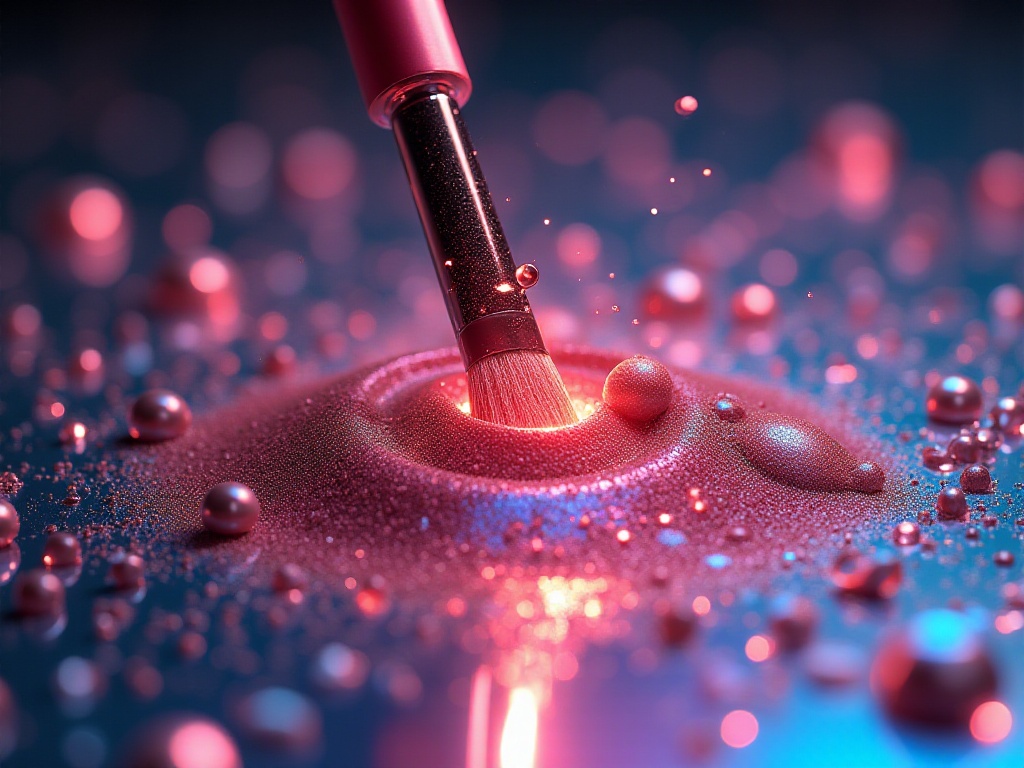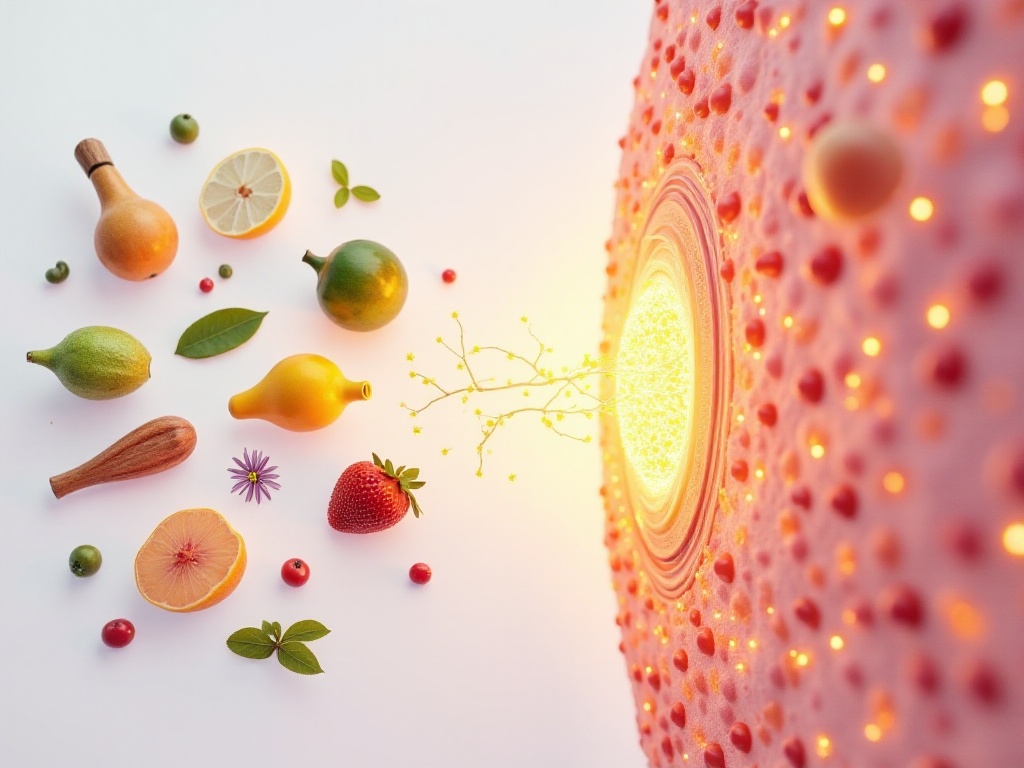Introduction
As a beauty blogger born in the 90s, I deeply understand that modern skincare can't rely solely on applying products to your face. I see many of my friends spending thousands on high-end skincare products, expensive serums and creams, yet their skin condition remains less than ideal. In fact, true beauty isn't just about surface-level care; it's more about the radiance that emanates from within.
The Way of Nutrition
When it comes to nutrition, we must address modern dietary habits. Although we live in an era of material abundance, honestly, many foods have less nutritional value than before. Our fast-paced lives have made us accustomed to takeout and fast food, making our nutrition increasingly unbalanced.
Take my friend Xiao Mei as an example. She's a typical urban professional who pays special attention to skincare, rotating between luxury brands like SK-II, La Mer, and CPB. However, her skin condition has remained problematic: large pores, dullness, and occasional breakouts. Once, I took her for a comprehensive nutrition test, and the results shocked us both!
The test showed severe deficiencies in multiple nutrients: her vitamin A was only 60% of normal levels, vitamin C was alarmingly low, and zinc and selenium levels were far below standard. That's when we found the root cause! Although she ate plenty, her nutritional intake was extremely unbalanced: breakfast was often rushed, lunch relied on takeout, and dinner during overtime hours consisted of snacks.
This reminded me of my early working days when I was the same way. To save time, breakfast was often just bread and coffee, lunch was takeout, and on busy nights I would simply go hungry. As a result, my skin was at its worst: yellow, dull, and prone to acne. Later, when I started studying nutrition, I understood the importance of beauty nutrition.
Beauty nutrition isn't simply about eating more or feeling full. It emphasizes balanced nutrition and scientific combinations to provide the body with sufficient essential nutrients. These nutrients are like a "nutrition army" for the skin, each playing an important role. Only when they work together can our skin truly display healthy radiance from within.

Key Nutrients
When it comes to specific nutrients, there are many. However, as a blogger focused on beauty nutrition for years, I've summarized some nutrients that are particularly important for skin.
Let's start with the vitamin family. Vitamin A can be considered the "renewal master" of skin. It promotes epidermal cell renewal and keratin formation, helping maintain normal skin condition. When you notice dry, rough skin, or clogged pores, it's likely due to vitamin A deficiency.
I previously experienced a period of severe vitamin A deficiency. My skin was extremely dry, and no amount of hydration seemed enough. Later, under a nutritionist's guidance, I began consciously supplementing foods rich in vitamin A, such as carrots, pumpkin, and spinach, and gradually my skin condition improved.
Vitamin C is absolutely a "star player" in beauty nutrition. It not only promotes collagen synthesis but also has whitening and antioxidant effects. When I first started supplementing vitamin C, I chose acerola cherry powder with particularly high natural vitamin C content and took it daily. After a month, even my mother noticed my improved complexion, and my skin became more radiant and elastic.
Vitamin E is the "protector" of skin. It has powerful antioxidant abilities and can combat free radical damage to skin. Moreover, vitamin E helps other nutrients work better. Now I eat some nuts every morning to supplement vitamin E and obtain healthy fatty acids.
After vitamins, let's talk about minerals. Zinc, selenium, and copper form the "guardian trio" of skin health. Zinc helps skin heal and regulates oil secretion; selenium has antioxidant properties and protects skin from oxidative damage; copper participates in melanin formation and promotes collagen synthesis.
One of my followers was previously troubled by acne, which didn't improve even with many anti-inflammatory medications. Later, testing revealed severe zinc deficiency, and after supplementation for a period, the acne situation notably improved. This further convinced me that many skin problems stem from nutritional imbalances.
Protein and collagen are also indispensable nutrients for skin health. Protein is an important component of skin, hair, and nails, while collagen directly relates to skin elasticity and firmness. There are many collagen products on the market now, but it's important to choose quality hydrolyzed collagen, as this form is more easily absorbed by the body.
I've tried many brands of collagen products myself. Some were expensive but mediocre, while others were cheap but watered down. Later, I found a Japanese imported hydrolyzed collagen powder that, although not cheap, was truly effective. After three months of consistent use, I clearly felt my skin become more hydrated and elastic.

Practical Guide
After discussing so many nutrients, some might ask: how should we supplement them? This question isn't simple at all. In my years of practice, I've seen too many cases of people getting counterproductive results from blind supplementation.
First, it's essential to get a comprehensive nutritional assessment. This is really important! I often recommend my followers get professional nutrition testing to know exactly what they're deficient in and what needs supplementing. The tests include various vitamins, minerals, trace elements, etc., and can be completed through blood work.
Some sisters might think testing is troublesome, but it's truly a worthwhile investment. Think about it: you spend thousands on a high-end skincare product, while a nutrition test costs just a few hundred and helps you understand your body condition more accurately - this investment is definitely worth it.
Second, pay special attention to the interactions between nutrients. Many people easily overlook this point. For example, taking vitamin C with iron supplements reduces absorption, and calcium tablets shouldn't be taken with iron supplements. I made this mistake before, taking all sorts of vitamins and minerals together in the morning, resulting in poor effectiveness.
Later, I learned scientific combinations: taking vitamin C at breakfast when stomach acid secretion is higher, facilitating absorption; calcium tablets in the evening, as that's the optimal time for calcium absorption; iron supplements should be taken at least 2 hours apart from vitamin C.
Let's talk about precautions for supplementing nutrients. Many nutrients are fat-soluble, such as vitamins A, D, E, and K, so it's best to take them after meals with some healthy fats. I now habitually eat nuts or avocado at breakfast, which both supplies healthy fats and helps these nutrients absorb better.

Market Analysis
At this point, we must discuss the current beauty nutrition market. This market has truly flourished in recent years, with various new products emerging constantly. From traditional vitamin tablets to new collagen drinks, from ordinary nutritional supplements to professional beauty nutrition formulas, there are too many choices in the market.
According to the latest market data, sales of vitamins, minerals, and dietary supplements continue to climb. Particularly products like probiotics, collagen, and vitamin C have seen continuous demand growth. This indicates that more people are beginning to value beauty care from the inside out.
However, faced with such abundant products, I suggest everyone must be discerning. For example, with collagen products, many brands are now launching innovative formulas claiming easy addition to coffee or smoothies. But the key is to look at the source of raw materials and processing technology. I've seen many inferior products with beautiful packaging and high prices but mediocre actual effects.
When purchasing beauty nutrition products, I suggest paying attention to these points: first, check the brand's qualifications and choose large brands with proper certification; second, look at the source of raw materials, as imported materials usually have more guaranteed quality; third, examine the technology level, such as whether collagen has undergone hydrolysis processing, or if vitamins use sustained-release technology.
I also collect and recommend some cost-effective products to my followers. For example, for vitamin C, I particularly recommend a German imported product using sustained-release technology, which not only has high absorption but also doesn't irritate the stomach. For collagen, I recommend several Japanese brands with mature technology and stable effects.

Final Words
After saying so much, the most important thing to understand is: beauty nutrition isn't an overnight matter; it requires persistence. As I often say: skincare products are external aid, while nutrition is internal strength. Only by combining both can we achieve the best results.
I'm a good example myself. Previously, I only focused on buying skincare products, and my skin condition remained unsatisfactory. Later, when I started paying attention to nutritional supplements, I gradually found my skin improving, and even became confident going bare-faced. This change isn't immediate but requires time and patience.
Everyone's constitution is different, and nutritional needs vary. Therefore, I suggest adjusting nutritional supplements according to your actual situation. You can start with a nutritional assessment, then supplement targeted nutrients while observing your body's response.
If you're also troubled by skincare issues, try approaching it from a nutritional perspective. Remember, true beauty isn't about piling on skincare products but about the healthy radiance that emanates from within. Let's work together to create our perfect skin!







